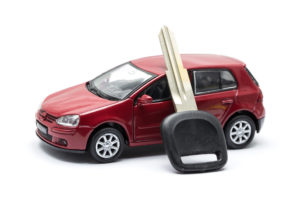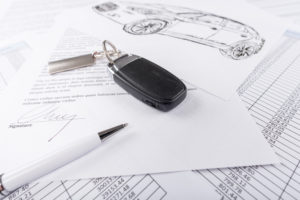
What’s the difference between contract hire and contract purchase?
Contract hire and contract purchase are very similar so it’s easy to see why this features as one of our most frequently asked questions. There are some fundamental differences which we’ll detail in this article. When deciding which lease option is best, it’s essential to have all the information. Then, finding one that best suits your needs will be easy. You’re welcome!
What is personal contract hire (otherwise known as PCH)?
A personal contract hire (PCH) allows you to lease a vehicle of your choosing for a set period of time. The minimum timescale for the lease is 1 year and the maximum is 5 years. The PCH lease option requires you to pay an initial payment. The initial payment equates to three, six, nine or twelve monthly payments up front. You choose the amount you pay up front. The remainder of the lease balance is then paid monthly over the course of the contract (between one and five years). At the end of the contract, you simply hand the car back. Assuming there is no damage or excess mileage on the vehicle you’ll have no further amount to pay. Want to know more about excess mileage charges, then this article is for you.
What are the pros and cons of PCH?
 PCH is a really popular option. Giving drivers the opportunity to drive a brand new vehicle for a fraction of the cost of purchasing from new. Other pros to choosing PCH lease are:
PCH is a really popular option. Giving drivers the opportunity to drive a brand new vehicle for a fraction of the cost of purchasing from new. Other pros to choosing PCH lease are:
- Fixed low payments make budgeting a PCH lease really easy.
- No worries over depreciation on the vehicle. When you purchase a new vehicle the moment you drive it off the forecourt you’ll experience depreciation in its value. This isn’t a concern with PCH as you won’t own the vehicle.
- Road tax and sometimes maintenance are included in the package. This saves further additional expense when managing your personal finances.
The only significant negative to a PCH plan is that you do have to stick within your pre-agreed mileage limit to avoid experiencing additional charges. You also must return the vehicle in good condition. This involves regular maintenance which can be costly. The vehicle’s condition will be inspected at the end of the lease against the BVRLA Fair Wear and Tear standard. It would be worth familiarising yourself with these guidelines.
Watch this video which explains more about PCH
https://youtu.be/Wxq1SJ0H-iA
What is personal contract purchase (otherwise known as PCP)?
 Personal contract purchase is very similar to personal contract hire detailed above, with one major difference. At the end of the contact, the driver is given the opportunity to purchase the vehicle. A ‘balloon payment’ amount is pre-agreed, this will not change throughout the course of the contract. If the driver wants to purchase the vehicle at the end of the lease they will be able to keep the vehicle for this pre-set amount.
Personal contract purchase is very similar to personal contract hire detailed above, with one major difference. At the end of the contact, the driver is given the opportunity to purchase the vehicle. A ‘balloon payment’ amount is pre-agreed, this will not change throughout the course of the contract. If the driver wants to purchase the vehicle at the end of the lease they will be able to keep the vehicle for this pre-set amount.
The PCP option starts off in the same way as the above PCH option. An initial payment equivalent to three, six, nine or twelve monthly instalments is due when the lease commences. The remainder of the balance is then split over the term of the contract. At the end of the lease, the driver can decide whether they would like to purchase the vehicle or hand it back. The decision to purchase the vehicle will need to be made approximately a month prior to the contract ending.
What are the pros and cons of PCP?
PCP* is an extremely flexible way to purchase a vehicle because of the variety of options available to the driver. This is one of the key benefits to PCP leasing. A PCP lease is a perfect solution if you’re not 100% sold on the idea of buying a new car. This is because you can experience the car without the commitment of purchasing it and still have the option to buy it at the end of the lease if you want to.
The finance company calculates the amount you need to pay at the end of the lease. This amount is known as the Guaranteed Minimum Future Value (or GMFV). GMFV is how much the finance house expects the car to be worth at the end of the contract. The benefit to knowing what the GMFV will be at the start of the contract is that there’s plenty of time to budget and plan for the final payment should you want to purchase the vehicle at the end.
As long as you’ve kept within the mileage allowance and the vehicle is in good condition you can hand the car back without any additional charge.
Watch our explainer video about PCP
https://youtu.be/ZPqgMrcEKIU
There are some subtle differences between contract hire and contract purchase for businesses which we’ve detailed for you below too.
What is business contract hire?
Contract hire is the simplest form of car leasing because it features a straight hire fee per month for a set lease time frame. A business can lease a car from one to five years, pay a set monthly fee and hand the car back at the end. What’s more, VAT registered businesses can offset 50% of the VAT on a car or 100% on a van. The finance commitments don’t need to be included on your business balance sheet either making contract hire a really attractive option for business leasing.
What is business contract purchase?
 A business contract purchase agreement allows the business to purchase the vehicle at the end of the lease term. This is a very cost effective means of borrowing to purchase a vehicle. The other fantastic perks to contract purchase for businesses are:
A business contract purchase agreement allows the business to purchase the vehicle at the end of the lease term. This is a very cost effective means of borrowing to purchase a vehicle. The other fantastic perks to contract purchase for businesses are:
- Businesses are able to claim tax relief against the interest charged on their repayments and they can also write off the depreciation of the vehicle against their taxable assets. This is a real perk because depreciation on a new vehicle is typically 19% of its value in the first year.
- A business choosing a contract purchase are unable to offset the VAT
- For the purpose of taxation, the business takes ownership of the vehicle as soon as it is in their possession.
Discover more about the financial benefits of car leasing for business here.
The core difference between contract hire and hire purchase
To conclude the article we’ve given you a handy list of the core differences between contract hire and hire purchase to help you make an informed decision about which option suits your needs better.
Contract Hire
- Has fixed low monthly payments
- Is a standard lease with no option to purchase the vehicle
- Sometimes road tax and maintenance are included in the package
- Businesses can claim back 50% of the VAT on the lease of a car
- 100% of the VAT can be reclaimed if you’re hiring a van
- The vehicle off the business books as they do not own it and it is not a taxable asset.
Hire Purchase
- Have higher monthly payments
- Provides the option to purchase the vehicle at the end of the contract
- There is a pre-agreed final balloon payment
- Businesses are able to claim tax relief on the interest paid
- The vehicle will be considered an asset so depreciation can be offset on the company tax return.
* As an example, a representative APR for PCP would be 5.5%, however this may vary
